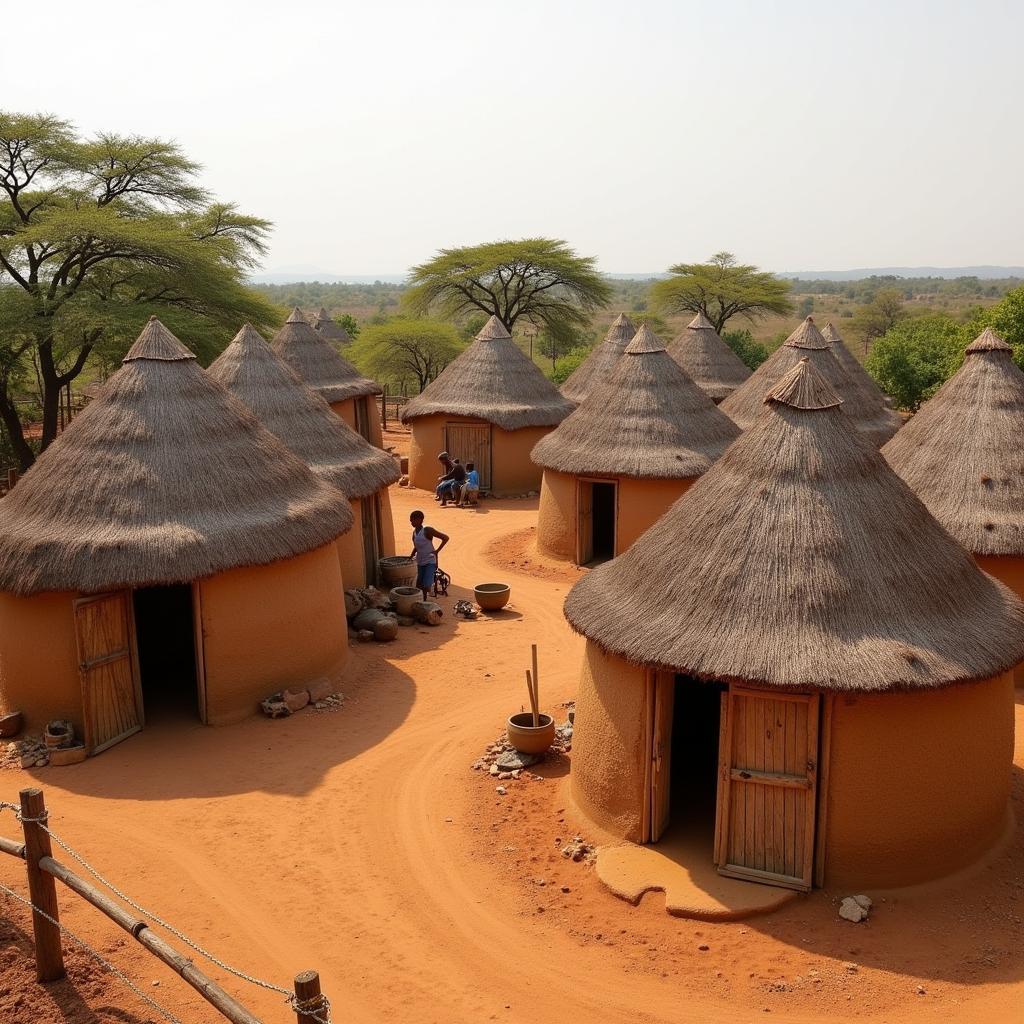Exploring the Realities of African High School
African High School represents a critical juncture in the lives of young people across the continent. It’s a melting pot of cultures, aspirations, and challenges, shaping the future leaders, innovators, and thinkers of tomorrow. This exploration delves into the diverse experiences within African high schools, examining the academic landscape, social dynamics, and the unique hurdles faced by students in various regions.
After completing primary school, students transition to secondary education, commonly known as high school, typically lasting six years and culminating in a final examination that determines their eligibility for higher education. Access to quality secondary education in Africa isn’t universal, with significant disparities between urban and rural areas, and varying levels of government investment across the continent. This, along with socio-economic factors, poses a significant challenge for many aspiring students. However, despite these obstacles, the pursuit of education remains a powerful driving force for countless young Africans. African high school students are eager to acquire knowledge and skills that will empower them to contribute meaningfully to their communities and the continent as a whole.
The Curriculum and Academic Structure of African High School
The curriculum in African high schools often blends national requirements with local adaptations. Core subjects generally include mathematics, science, English, and local languages, supplemented by social studies, history, and sometimes technical or vocational training. The specific emphasis on different subjects can vary depending on the country and the type of school, with some focusing on preparing students for university entrance exams while others prioritize practical skills development.
Navigating the Challenges of African High School Education
One key challenge is the often-limited resources available to many schools. Overcrowded classrooms, a lack of textbooks, and insufficient laboratory equipment can hinder the learning process. Another challenge is the significant digital divide. While internet access is growing, many schools, particularly in rural areas, lack adequate computer facilities and internet connectivity, limiting students’ exposure to digital learning resources and online educational opportunities.
The Social Landscape of African High School
African high school is not just about academics. It’s also a crucial period for social development. Students form lifelong friendships, navigate peer pressure, and develop their sense of identity. Extracurricular activities, such as sports, clubs, and cultural groups, play an important role in shaping the overall high school experience. These activities provide opportunities for students to develop leadership skills, discover their talents, and build a sense of community. African high school girls are increasingly breaking barriers and excelling in various fields, challenging traditional gender roles and paving the way for future generations.
What is the role of extracurricular activities in African high schools?
Extracurricular activities offer a vital platform for students to explore their interests, develop essential skills, and build valuable social connections outside of the academic realm. They contribute significantly to personal growth and provide a well-rounded educational experience.
Looking Towards the Future: Beyond African High School
For many students, completing high school is a stepping stone towards higher education and future career prospects. The journey, however, is not without its hurdles. The competition for university places is often fierce, and financial constraints can prevent many qualified students from pursuing their academic dreams.
African American history syllabus high school offers valuable resources for educators. Many African countries are implementing educational reforms to improve the quality and accessibility of secondary education, focusing on enhancing teacher training, developing relevant curricula, and expanding infrastructure. The goal is to equip students with the skills and knowledge necessary to thrive in a rapidly evolving global landscape.
What are some of the common career paths after African high school?
Common career paths include pursuing university degrees in fields like medicine, engineering, and business, or entering vocational training programs for skilled trades. Entrepreneurship is also a growing trend, with many young Africans leveraging their skills to start their own businesses.
In conclusion, African high school is a vibrant and complex ecosystem, filled with both challenges and opportunities. African country banned internet services during high school exam demonstrates the importance placed on academic integrity. It is a crucial period of growth and development for young Africans, shaping their future trajectories and contributing to the ongoing transformation of the continent. Investing in quality secondary education is essential for unlocking the vast potential of Africa’s youth and building a brighter future for all. African American novels for high school students can provide valuable insights.
FAQ
- What is the typical age range for African high school students? (13-19)
- Are there boarding schools in Africa? (Yes, boarding schools are common in many African countries.)
- What languages are used in African high schools? (English, French, Portuguese, and various local languages are used depending on the region.)
- How does the cost of African high school vary? (Costs vary greatly depending on the type of school (public or private) and the country.)
- What are the challenges faced by girls in African high schools? (Girls often face challenges related to access, affordability, cultural norms, and early marriage.)
- What role does technology play in African high schools? (Technology is increasingly being integrated into education, but access and infrastructure remain significant challenges.)
- What are the opportunities for students after completing African high school? (Opportunities include higher education, vocational training, and entrepreneurship.)
Common Situations and Questions
- Scenario: A student struggles with the cost of high school. Question: What financial aid options are available for high school students in Africa?
- Scenario: A student is uncertain about which career path to choose. Question: What career counseling services are available for African high school students?
- Scenario: A student faces bullying or discrimination at school. Question: What support systems are in place to address these issues in African high schools?
Further Exploration
You might also be interested in exploring articles about university education in Africa, scholarship opportunities, and the role of education in economic development.
When you need assistance, please contact us at Phone: +255768904061, Email: [email protected], or visit us at Mbarali DC Mawindi, Kangaga, Tanzania. We have a 24/7 customer service team.


